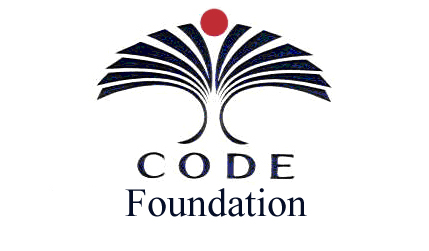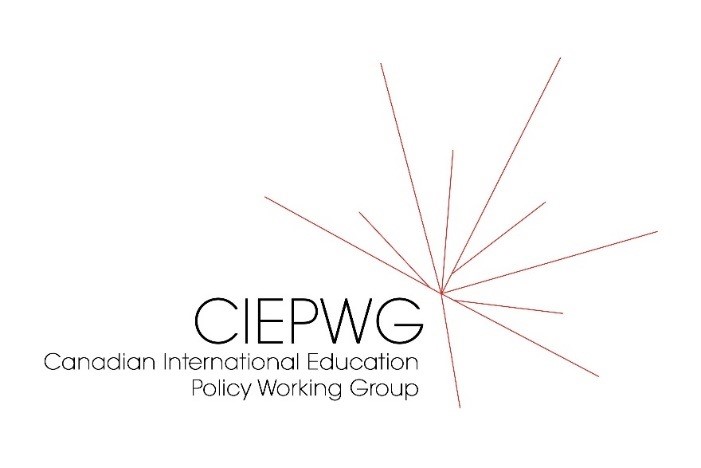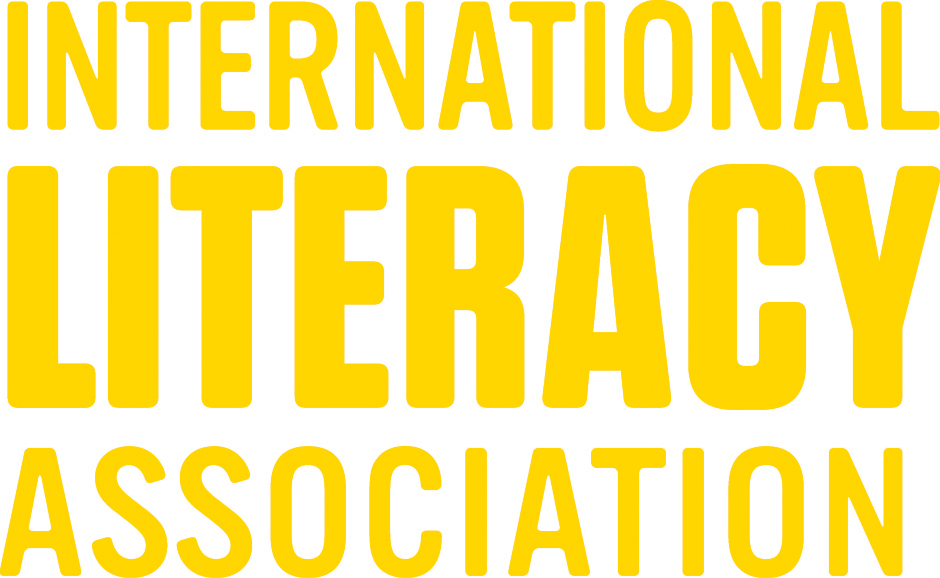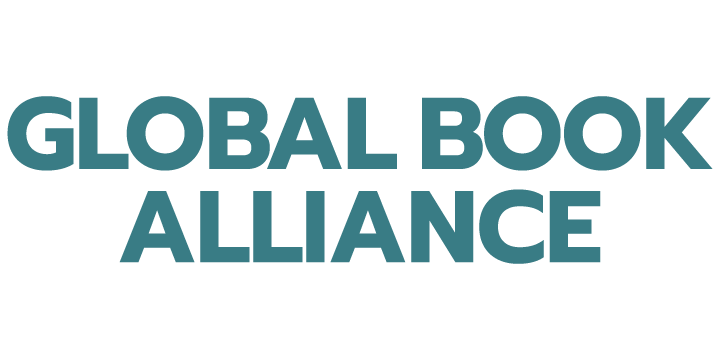



Dear Friends and Colleagues,
At CODE, we are humbled that, among the many important causes you could choose to support, you continue to place your trust in us. Your generosity fuels our mission to ensure every child has the chance to learn to read and write, and it strengthens the partnerships that make progress toward this vision possible.
This past year, we renewed our commitment to partnership. Our role is not to lead from afar but to walk alongside those who know their communities best. By listening, learning, and supporting our partners’ expertise, we are embracing localization in a way that strengthens programs today and shapes CODE’s future direction under our upcoming 2025 - 2030 Strategic Plan.
We also made an important decision for CODE’s sustainability: the sale of our Chapel Street headquarters and transition to a leaner, hybrid working model. This was a prudent choice that ensures more of our resources flow directly to our mission. In a rapidly changing international development sector, these steps position CODE to remain agile, resilient, and impactful.
While the number of students and teachers reached this past year was lower than in recent years, this reflects the natural rhythm of project cycles rather than diminished ambition. Behind every number is a story of transformation – teachers better equipped to spark learning, students discovering the joy of reading, and communities more engaged in education. We hope you will be inspired by the stories of change and impact shared in this report.
Thank you for walking alongside us. With your support, CODE is entering its next chapter – one defined by deeper collaboration with our local partners, a focus on sustainability, and the unwavering belief that every child deserves the chance to read and write.

Janice Ciavaglia
CEO

Nathalie O’Neil
Chair

– Teacher in the BETTER project, Mozambique
Together with our partners and supporters, CODE has, over 65 years, helped more than 10 million children strengthen their literacy skills and access a better quality of education, transforming not only their own futures, but also those of their families and communities.
Our work is inspired by our vision, driven by our mission, and grounded in the values that guide us every day.
A world where every child can read and write.
CODE collaborates with local partners to create supportive learning environments that foster effective literacy practices and promote engagement between families, communities, and schools to advance children's reading and writing abilities.
Human Rights, Accountability, Transparency, Equity and Sustainability
Nearly 9 out of 10 children in sub-Saharan Africa cannot read a simple text with comprehension by the age of 10.
(Source: The State of Global Learning Poverty: 2022 Update, World Bank)
An estimated 15 million qualified teachers are needed in sub-Saharan Africa by 2030 to achieve universal primary and secondary enrolment.
(Source: Global Report on Teachers, UNESCO, 2024)
Only 29% of low-income countries achieve gender parity in primary enrollment and 16% in lower secondary.
(Source: Global Education Monitoring Report Gender Review, UNESCO, 2018)

Nine-year-old Magesa, a grade three student at Kiningina Primary School, smiles with excitement as he talks about the new storybooks. “Before the books, some of our friends often skipped school for many days. Reading was rare, and the few textbooks we had were not fun,” he recalls.
The colourful new books soon created a ripple effect. Even children who once avoided school grew curious. Regular readers began sharing the storybooks, sparking conversations that always ended with the same question: “Where did you get them?”
For Magesa, the storybooks are bringing more than an opportunity to improve his reading skills, they transformed school itself. It became a place of joy, curiosity, and discovery. A place where children now want to be every single day.

Supported
children through its literacy programs
(Compared to: 518,060 last year)

Distributed
copies of books
(Compared to: 391,827 last year)

Provided
teachers with professional development opportunities
(compared to 14,291 last year)

Partnered with
schools
(Compared to: 1,834 last year)

Received support from
caring Canadians
(Compared to: 4,299 last year)

– FGD with Boys Awudua Catholic Basic Primary, Reading Ghana Western

The average grade 2 reading comprehension score increased from 9% to 23% within 24 months of students and teachers participating in the Teaching and Learning in Fragile Contexts project.


82% of girls in Liberia’s Girls’ Accelerated Learning Initiative were promoted mid-year, putting them firmly on track to being double promoted in a single year. Getting girls to an age-appropriate grade helps increase their chances of staying in school.
Reading comprehension scores for grade 5 students in the Reading Ghana Western Region program increased by 15% over 16 months as compared to stagnated scores of students not in the project.


After 9 months, the average reading comprehension scores for grade 1-3 students in the Girls’ Accelerated Learning Initiative were substantially higher than those students not in the project.
Today, 95% of BETTER project teachers in Mozambique feel confident using student-centered, gender-sensitive teaching approaches – up sharply from only 37% before the project.



In Sierra Leone, grade 2 teachers using and adapting best-practice strategies from the Teaching and Learning in Fragile Contexts project grew from 40% at the start to 89% midway through the 4-year project – showing major gains.
Data from 2023 indicated that 61% of Tanzanian students aged 10 - 14 cannot read and understand a simple text; in CODE project schools 84% of grade 3 students were able to read grade-level text with comprehension


– Yvonne Capehart Weah, WE-CARE Foundation co-founder
Across every community where CODE works, local partners lead the change, bringing the knowledge and commitment needed to advance children’s literacy. Their leadership and community roots make programs relevant, effective, and lasting. CODE’s role is to listen, collaborate, and support – helping strengthen capacity, connect resources, and amplify proven approaches.
Together with community organizations, ministries of education and school communities, we co-create locally driven solutions. With demonstrated results, we work collectively with governments and institutional funders to bring these approaches to scale, building systemic, sustainable change.
We are proud to spotlight these exceptional partners:

The dreams of countless young Liberian girls are crushed under the weight of poverty, cultural barriers, and a lack of resources, robbing them of the chance to learn and grow. Patricia was just another girl who started school late, was embarrassed about being a teenager in a Grade 1 classroom and told she wouldn’t amount to much. With both of her siblings out of school, it was easy to assume she would end up the same.
But she is proving the skeptics wrong. Through the Girls’ Accelerated Learning Initiative, she has learned to read and write, is a good student, and has advanced four grades in two years. Not only that, through the life-skills lessons offered as part of the after-school program, she says her self-esteem has improved, “It makes me to value myself and love myself.” Her life has been forever changed.

– Lucia Haule, Teacher at Mhola Primary School in Tanzania














In the mining communities of Tarkwa and Prestea-Huni Valley, children often face the harsh choice between school and supporting their families through unsafe work. Thanks to your generosity, CODE, the Olinga Foundation for Human Development, and the Gold Fields Ghana Foundation are helping 12,500 students in 37 schools discover the joy and power of reading.
This year, 296 teachers strengthened their skills in child-centered and inclusive literacy instruction. Our midline assessment shows the difference: in Primary 2, students in project schools were twice as likely to meet reading comprehension benchmarks as their peers in non-project schools. By Primary 5, nearly 33% of students demonstrated fluency and comprehension compared to just 17% in comparison schools.
The 34,000 culturally relevant books distributed in 2023/24 continued to enrich classrooms and libraries, now complemented by an additional 2,035 new children’s books. To reinforce learning, 53 Reading Clubs kept 2,053 children actively engaged—even during school holidays. Meanwhile, lively reading festivals and strong parent-teacher collaborations helped nurture a vibrant culture of literacy, with more than 1,100 parents taking part.
Together, we are building a future where learning thrives, and children are free to imagine new possibilities.


In Liberia, thousands of girls fall behind in school due to poverty, early marriage, and the stigma of being older than their classmates. Many are at risk of leaving school altogether. With your support, CODE and our partner, the WE-CARE Foundation, are changing this story.
This year, 840 overage girls enrolled in daily after-school tutoring through GALI-X. Their determination paid off: 82% were promoted to the next grade mid-year and are on track to achieve two grade levels in one year. Our mid-project evaluation also showed 93% of GALI students outperformed peers in non-project schools in reading comprehension, with overall reading scores improving by nearly 50% from baseline.
Teachers also benefited. Fifty-seven educators participated in intensive training toward their C-Certificate, the minimum qualification required to teach at the primary level, and received mentoring that led to more engaging, student-centered classrooms. Family engagement meetings drew over 1,100 parents and caregivers, reinforcing the vital role of community support.
GALI-X is more than an academic program. From providing meals and menstrual products to digital learning, life-skills development and climate education, it gives girls the tools and confidence to stay in school and succeed.
For nearly a decade, CODE and Associação Progresso, with support from Global Affairs Canada, worked to strengthen teacher training in Mozambique. Together we have reshaped how future educators are prepared to teach, with lasting benefits for children across the country.
The project reached more than 6,000 student-teachers and 3,000 in-service teachers, directly improving learning for over 122,000 children. Graduates of the BETTER program consistently reported being more confident and better prepared than their peers, and classroom results reflect this. In Cabo Delgado, 65% of Grade 4 students taught by BETTER-trained teachers achieved grade-level comprehension compared to 45% in comparison schools.
A cornerstone of BETTER’s legacy is the creation of five comprehensive teacher-training manuals – integrating student-centered, participatory methods with strong literacy practice. CODE distributed around 96,000 copies of these manuals to all 38 Teacher Training Institutes in Mozambique. Trainers report that the manuals bring clarity and consistency to instruction, ensuring high-quality approaches continue even as new educators join the profession.
Although BETTER formally closed in 2024, its influence endures. The Ministry of Education has adopted the program’s methods as a model for national reform. CODE continues to work with partners to building on this strong foundation in the years ahead.


In Sierra Leone and Liberia, teachers often work in schools with scarce resources and students facing multiple barriers to learning. With your support and that of Global Affairs Canada, CODE and our partners – the WE-CARE Foundation in Liberia and TALLE-RSL in Sierra Leone – are equipping teachers to deliver inclusive, learner-centered instruction that helps children build strong literacy skills.
Over the past year, teacher educators and mentors supported both pre-service and in-service teachers through training, coaching, and Communities of Practice. Our project assessment midway through the program showed encouraging progress: literacy scores among Grade 2 students rose by 12% in Liberia and 16% in Sierra Leone.
Student reading outcomes were strongest in classrooms where teachers used active learning, differentiated instruction, and gender-responsive strategies. Yet inequities remain. Children from disadvantaged households, or those who speak a language at home different from the language of instruction, continued to lag behind their peers. These insights are shaping the project’s adaptive design so that future efforts better respond to the real challenges these learners face.
In the coming year, TLFC will expand coaching and Communities of Practice, refine strategies to better support struggling learners, and distribute an estimated 60,000 copies of 12 new reading anthologies. Each anthology includes more than 60 pages of engaging, curriculum-aligned text with local stories and illustrations, bringing classrooms to life with materials that children can see themselves reflected in.
Through the iHEARD project, CODE and partners are uniting schools, health facilities, parents, and media platforms to ensure adolescents and young people in Malawi can grow up with the knowledge, confidence, and care they need to make safe, informed choices. For CODE, this means bringing our expertise in education and youth engagement to a critical challenge.
This year, more than one million young people were reached through trusted platforms like community radio and school clubs. A major highlight came in December when iHEARD partners teamed up with a renowned Malawian musician at a national music festival, drawing more than 25,000 young people. In collaboration with the Ministry of Health, over 5,000 of them accessed sexual and reproductive health services in a single day—an unprecedented demonstration of demand when services are made accessible.
The difference is clear, youth who once lacked accurate information are now equipped to make informed decisions, seek out services, and advocate for themselves and their peers. Parents are breaking the silence around sensitive topics, health workers are offering more youth-friendly care, and young leaders are stepping forward to create safer, more supportive environments for girls.
Looking ahead, iHEARD will continue to strengthen youth advocacy groups, host knowledge-sharing events and complete a final evaluation. These efforts will not only demonstrate results but also lay the groundwork for sustained impact, ensuring young people’s voices remain central in shaping healthier, more equitable communities.


In 15 schools across Morogoro, Tanzania, children in the earliest grades are discovering the joy of reading thanks to the Reading Tanzania project. With your support, CODE and the Children’s Book Organization (CBO) are helping 4,955 students in Grades 1–3 build the foundational literacy skills they need to succeed in school and in life.
The results this year are inspiring. After two years of targeted teacher training, mentoring, and the introduction of engaging books, 83% of participating students are now reading with comprehension at grade-level. Over 80% of teachers are applying child-centered strategies, creating classrooms where learning comes alive.
To support this transformation, four new children’s books were created with support of talented Tanzanian writers, illustrators and publishers: Twende Twende (Let’s Go! Let’s Go), Tabasamu Langu (My Smile), Safari ya Jua (Journey of the Sun), and Tusome Abachaa (Let’s Read, Abachaa). In the past year alone, 9,000 books made it into the hands of eager young learners, bringing our distribution total to 13,500. Teachers report that the stories, filled with vibrant illustrations and familiar themes, have quickly become essential tools for reading instruction and a source of excitement for children. Book-lending systems in all schools have extended this impact into homes, fostering stronger parental involvement.
As the project concludes, CODE and CBO are working with national partners toward build on these gains, ensuring that every child has the chance to experience the power of reading.
CODE’s Teaching Matters research project in Sierra Leone is part of a global research initiative funded by the International Development Research Center (IDRC) under ETI-TPD@Scale. Building on the ambitious Training and Supporting Teachers in Sierra Leone (TST-SL) project, which concluded in 2023, this research asks an essential question: From our project experience, what is the most effective and scalable model of Teacher Professional Development through local Communities of Practices in Sierra Leone?
TST-SL, delivered in partnership with UNICEF and funded by the Global Partnership for Education, reached more than 220,000 students, trained nearly 7,000 teachers, distributed over half a million early grade reading books, and created more than 800 Teacher Learning Circles across 1,300 schools. It was CODE’s largest-ever teacher development initiative and a milestone for Sierra Leone. Yet the challenge remains: how do we ensure that this progress continues once external funding ends?
Over the past year, Teaching Matters has been working in 40 schools across Port Loko and Kenema to observe local Communities of Practice in action. Early findings show that some schools have managed to sustain vibrant professional learning communities, while others have struggled. The next phase of research will test targeted interventions and deepen collaboration with government partners.
Ultimately, the goal is to generate evidence for a sustainable national model of teacher professional development—so that Sierra Leone’s teachers, and the millions of children they serve, can continue to benefit from stronger teaching and learning for years to come.

We are deeply grateful to our voluntary Board of Directors whose vision, guidance, and dedication strengthen CODE’s mission and amplify its impact around the world.
Board of Directors
(as of March 31, 2025)
Chair, Nathalie O’Neil
Global Affairs Canada, Ret.
Past Chair, Bruce Montador
Senior Public Servant, Ret., Chair, Africa Study Group, Canadian International Council, National Capital Branch
Treasurer, Pauline Port
VP Corporate Services and CFO, Canadian Blood Services, Ret.
Rachel Welch O’Connor
Practice Lead, Leadership and Performance · WATSON Advisors Inc.
Dr. James V. Hoffman
Language and Literacy Studies, The University of North Texas
Jeff Kehoe
Director, Enforcement at Ontario Securities Commission
Dr. Hellen Nasimiyuh
Associate Professor at the University of Nairobi
Dr. Nduka Otiono
Assistant Professor, Institute of African Studies at Carleton University
Dr. Asheer Sharman
Physician specializing in Intensive Care and Internal Medicine, Trillium Health Partners
Aliou Sow
Publisher and International Education Consultant
Dr. Rob Tierney
Dean Emeritus and Professor Emeritus of Language and Literacy Education, UBC
Janice Ciavaglia
CODE CEO/Ex-Officio
Colin McNairn
Honourary Life Counsel
Leadership Team
(as of March 31, 2025)
Janice Ciavaglia
Chief Executive Officer
Andrea Helfer
Director of Fund Development and Marketing
Joan Summers
Chief Operating Officer and Acting Director of Programs
Carly Virtue
Chief Finance Officer

– Helena Kemokai, GALI Teacher

Sierra Leone urgently needs more qualified women teachers who can inspire and advocate for girls’ education. As a young woman in teachers’ college, Kadijatu was eager but uncertain about her ability to make a real difference. The Teaching and Learning in Fragile Contexts (TLFC) project arrived at the perfect moment, “transforming not just my abilities but my belief in myself.”
Through the project, mentoring became the cornerstone of her growth. During practicum sessions, she was never left to face classrooms alone. Experienced mentors guided her step by step, reinforcing both subject knowledge and practical strategies to engage students. Supported with culturally relevant teaching and learning materials, Kadijatu gained the confidence, resilience that now define her as an inspiring teacher and role model.

– Theresa Korngor, past GALI student (now in Grade 11)
Every donation to CODE helps open the doors of literacy and learning. We are profoundly grateful to all who choose to give so generously. While we cannot acknowledge every donor by name here, please know that each contribution is deeply valued and is making a lasting difference.
Individuals
Grant Anderson
Noreen Angus
Brian Bencze & Carina Bleuer
Ina Berzins
Daniel Blanstein
Donna Bourdeau
Robert Bracey
Wilfred and Mary Bradnock
Hilderic Browne
Sheila Burvill
Jamie Cameron
The Cameron Family
Guillaume Couillard
David Cuthiell
Ron and Elizabeth Davies
Nancy Edwards
Gwynneth Evans
Dianne Fahselt
Jean & Kenneth Finch
William Forward
Jack and Shayla Goldstein
Sheila Behm and Robin Green
Andrea Helfer
John Hucker & Jacqueline Hucker
Valerie Hussey
Neil Jacoby
Lloyd Karges
Martin Kuhn
Réal Lavergne
Susan & Peter MacLaren
R. Bruce Montador
George Ian Morrison
Nathalie O'Neil
Dennis Passerini
Eric Praetzel
Beverly Graham & Niels
Rasmussen
Carl Saunders
Gordon Scheller
Laurie and William Shaw
Rick & Michelle Soenen and family
The Sollbach family
Michael Strelbisky
Joan Summers
Richard Talbot
Richard Taylor
Maureen Thompson
Suzanne Tory
Scott and Olga Walter
Farah and Eric Webber
Rachel and Ryan O'Connor
Steve Winder
Heather Wrigley
And 51 Anonymous donors
Estates
Estate of William Sargent
Estate of Lorena Saxton
Foundations
Bernhard Melitz Foundation
The Birdfall Foundation
Canadian Medical Foundation
Celtic Cross Foundation
CLV - Charity
CODE Foundation
The David and Patricia Morton
Family Foundation
The Flanagan Foundation
Fondation Edward Assh
Harrison-Cooper Foundation
Leanne Palylyk Children's Foundation
N.A. Taylor Foundation
The Peter Gilgan Foundation
Peterborough K.M. Hunter Charitable Foundation
RJL Braydon Charitable Foundation
The United Church of Canada Foundation
Corporations
A. Sharman MPC
Alpha Financial Markets Consulting
Bloom Medical Inc.
Gardenview Holdings Limited
Gold Fields Ghana Foundation
Megaloid Laboratories
Smile.io
Tallman Technologies Inc.
WMJ Metals Ltd. in memory of Mary Irene Moure
Community Fundraisers
Elementary Teachers' Federation of Ontario
International Charity Fund of ICAO Staff Association
Manitoba Council for International Cooperation
Ontario Secondary School Teachers' Federation
Queen's University - CODE Chapter
The Alberta Teachers' Association
Sisters of St. Joseph in Canada
Unifor Social Justice Fund
All Girls Reading: Campaign Cabinet
Christopher Bredt
Paul Bouzanis
Catherine Carlin
The Casey Family
Janice Ciavaglia
The Halley Family
Jeff Kehoe
Colin McNairn
Geraldine Pelletier
Brian Traquair
The 2024–25 fiscal year was one of both growth and transition for CODE, highlighted by strong fundraising results, a one-time property sale, and careful management of resources. Total revenue reached $12.4 million, representing a 7% increase from the prior year’s $11.6 million.
A major contributor to this growth was an impressive 42% increase in fundraising revenue . This reflects both the loyalty of long-standing donors, the support of the CODE Foundation and the positive impact of recent investments in fundraising capacity. These gains are critical to ensuring CODE’s long-term sustainability and ability to respond to emerging literacy needs.
In addition, the sale of the Chapel Street property generated net proceeds of $2.75 million and a one-time gain of $2.56 million, $ 2.3 million of the proceeds was transferred to the Foundation creating new flexibility to support future programs and strategic priorities of CODE.
The CODE Foundation provided $1.5 million in funding in 2024-2025 combining unrestricted and restricted contributions to offset the costs of program development, fundraising, and other project initiatives. The restricted portions of the funding fall under project revenue, while the unrestricted falls under donations on our audited financial statements.
Total expenditures were $12.0 million, up from $11.7 million in 2023–24. The increase reflects the $2.3 million transfer to the CODE Foundation.
CODE recorded a surplus of $443,246, compared with a deficit of $160,424 the previous year. Cash ended at $2.01 million, up from $1.37 million, while net assets increased to $834,000 –providing a strong foundation for the year ahead. The Finance & Audit Committee continues to oversee financial management, and Deloitte LLP issued an unqualified audit opinion.
This year, CODE has adopted a revised presentation format for its audited financial statements. The updated layout is designed to improve alignment and to enhance transparency for our stakeholders. One notable change is the reclassification of certain fundraising efforts. In prior years, restricted contributions from donors were reported under donation revenue. Beginning this year, these amounts are presented under project revenue on the audited financial statements, reflecting the fact that they are directed to restricted activities. This adjustment provides a clearer picture of how donor funds are applied directly to support CODE’s mission, while also strengthening comparability across program and funding sources.
These pie charts represent normalized revenue and expenses with the removal of one-time transactions related to CODE's property sale.

– Musa Sherman, Teacher at Gohn Public School in Liberia